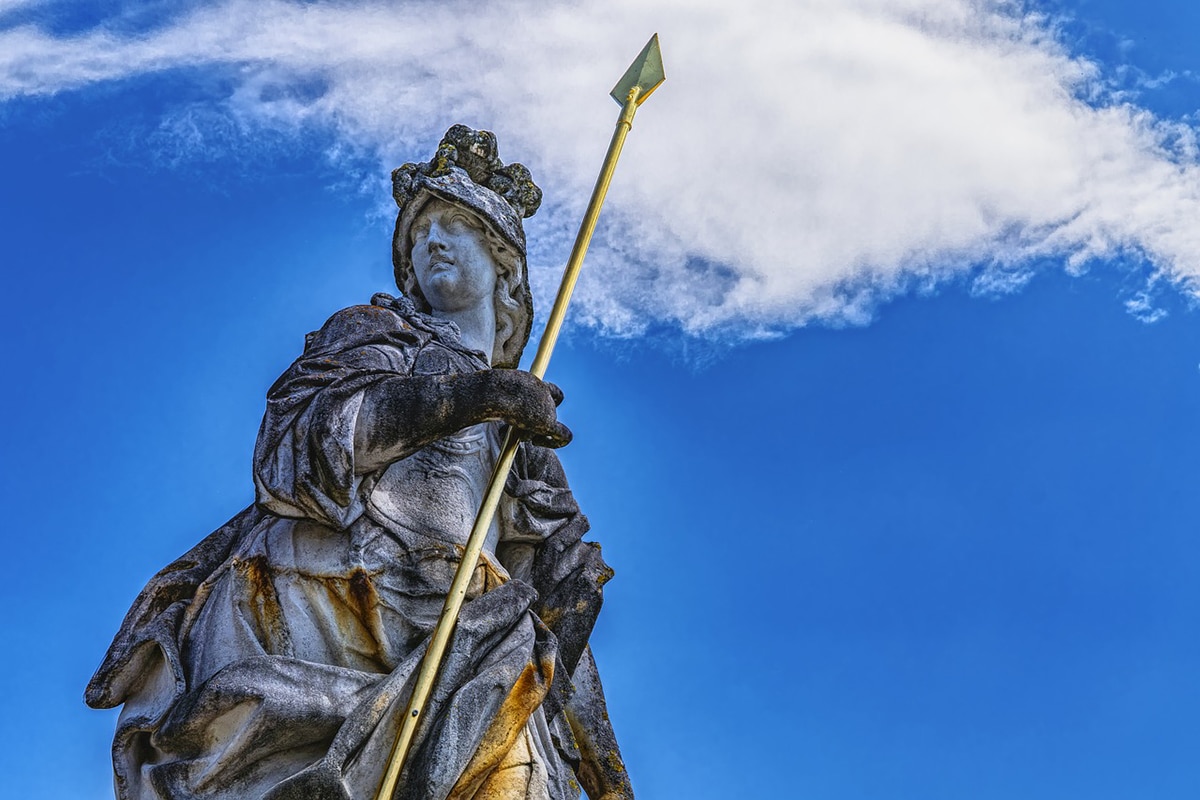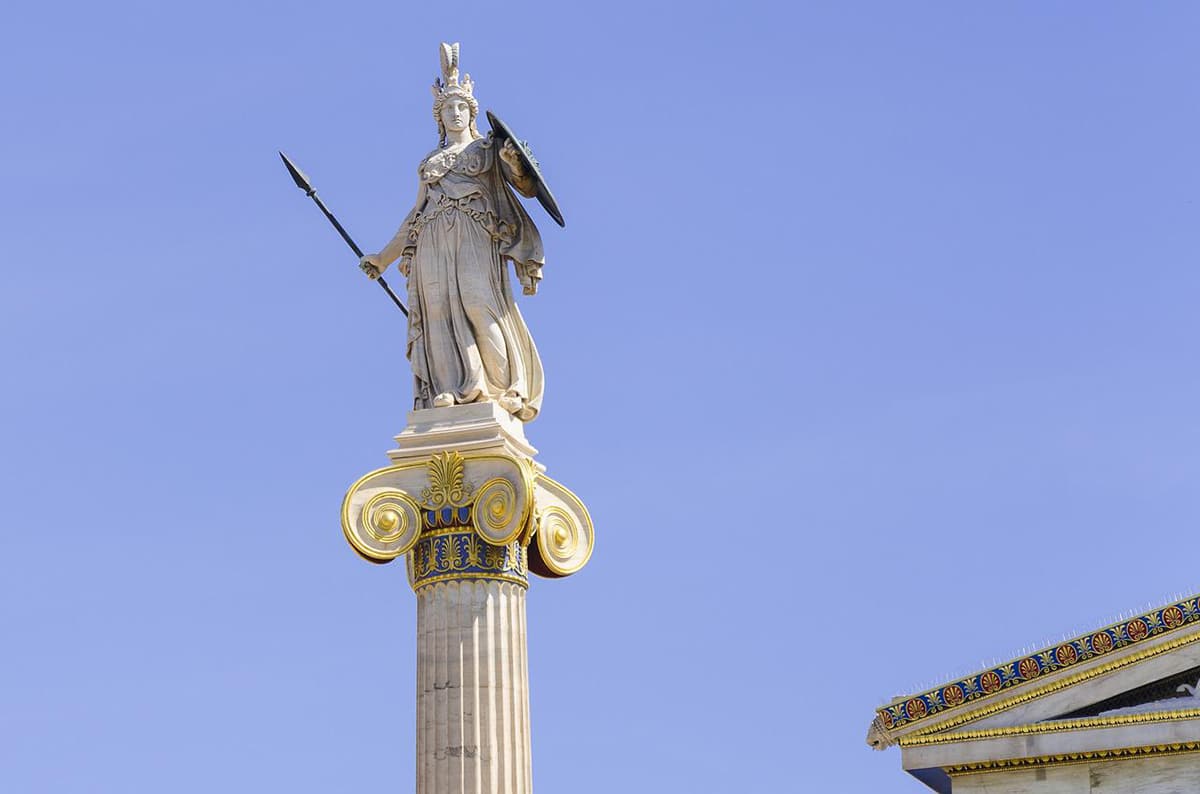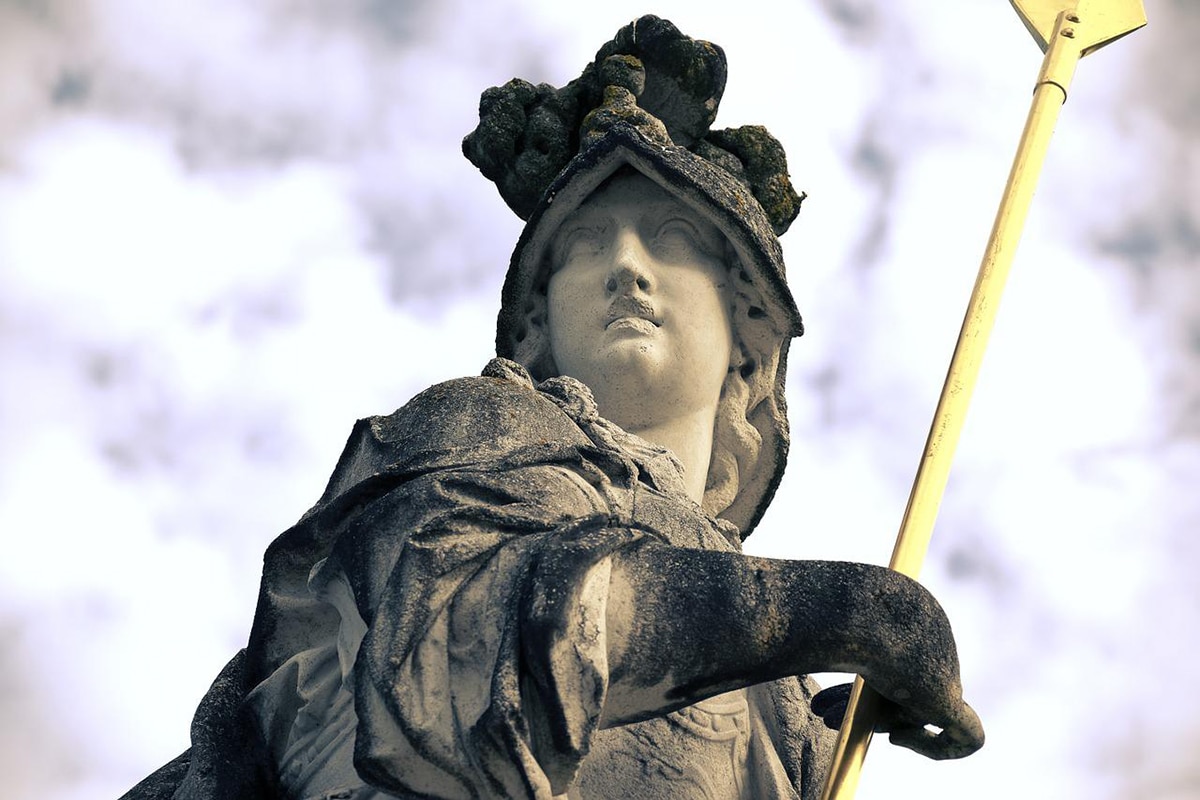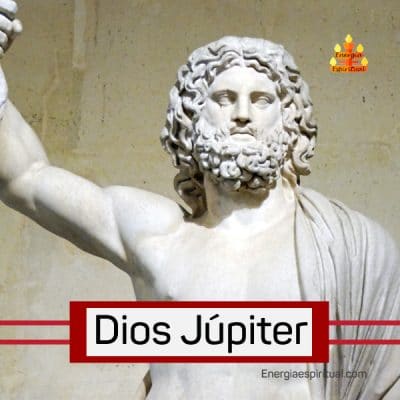
In many legends and myths, Greek and Roman culture go hand in hand. Therefore, some stories and representations of gods are very similar, if not the same. One of the most famous and notable deities in Greek mythology is Athena, goddess of wisdom. Surely at least her name sounds familiar to you. But do you know the equivalent of it in the other culture? To get you out of doubt, we will talk about the Roman goddess Minerva.
Apart from explaining who this mythological character is, we will also comment on what it symbolizes and how it is usually represented. In addition, we will make a brief summary of the myth that deals with the birth of the Roman goddess Minerva. If you like the stories of the gods of this culture, you will surely find this article interesting.
Who is the Roman goddess Minerva?

When we speak of the Roman goddess Minerva, we refer to the daughter of Jupiter who She is the patron saint of craftsmen and the protector of Rome. Her equivalent in Greek mythology would be the famous goddess Atenea. However, a small difference should be noted: While the Greek goddess is the deity of wisdom and war, the Roman goddess is only wisdom, in principle. In Roman mythology, the rank of goddess of war is held by Bellona, daughter of Jupiter and Juno and wife or sister of Mars, depending on the source.
However, later in Roman history, Minerva obtains the title of goddess of war, strategy and defense. But it should be noted that, in general, defends this title only in the city of Rome. In the other places of the Roman Empire it used to represent other characteristics not so related to war and warmongering.
What does the goddess Minerva symbolize?
The virgin goddess Minerva is known in Roman mythology as the goddess of wisdom. Although this is its main characteristic, many other meanings are attributed to it. Thus, this deity represents the following elements:
- The arts
- Science
- Civilization
- The education
- The state
- The strategy
- The navegation
- Trade
- Justice
- The law
- Courage
- The philosophy
- The ability
- The heroes
- The force
- The victory
- The inventions
- The medicine
- The magic
- the trades
- The industry
- The development
- War
- Peace
Since Minerva represents so many things, some even very everyday, it is not surprising that she was one of the deities most praised at that time. Much worship was paid to him and numerous tributes were made in his name.
The birth of the Roman goddess Minerva

We can find entire books on the myths and legends related to the Roman goddess Minerva, so we are going to summarize the most representative story of this deity: Her birth. She was the daughter of Jupiter, the main god of Roman mythology, and of Metis, a Titaness who symbolized prudence.
However, they had warned the god of gods that all the children he had with this Titaness would end up surpassing him in both strength and wisdom. As he was not willing to stay in the background, he decided to swallow his lover and thus avoid the prophecy. But back then, Metis was already pregnant. The fetus, which would end up being Minerva, continued to develop normally inside Jupiter.

After some time, the god of gods began to have an unbearable headache and decided to ask Vulcan, the god of fire, for help. He used an ax to split Jupiter's head open. from which emerged an adult woman armed from head to toe: Minerva. According to legend, the moment this goddess arose, she uttered a war cry so powerful that the entire universe, including the gods, trembled in fear upon hearing it.
Seeing for the first time the daughter he had conceived, Jupiter was both fearful and amazed. Since he was sure that Minerva had inherited both her father's strength and her mother's intellect, decided to name her goddess of strategic warfare and wisdom.
How is Minerva represented?

Throughout history, the Roman goddess Minerva has been represented in various images and sculptures. Generally, she gave him a simple, modest, and careless, but beautiful appearance. She usually has a serious expression but at the same time gives off an imposing strength, majesty and nobility. Although it is true that we usually see her seated in representations of her, on the occasions that she is standing she presents a resolute attitude typical of war, with her gaze fixed on the sky and a meditative touch. As for her clothing and accessories, the most common is that she wears a helmet on her head and is accompanied by a shield in one hand and a pike in the other. It is also very common for him to carry an aegis on his chest.
As is quite common in the deities of various mythologies, there are some animals consecrated to the Roman goddess of wisdom. In the case of Minerva, these would be the bee, the dragon and the owl. The latter, as many of you already know, represents intelligence and cunning. On the other hand, the bee symbolizes courage, warlike ardor, prosperity, order and resurrection. Regarding the dragon, this mythological animal has different meanings depending on the culture. In the case of the Roman, this represents wisdom and power.
It must be said that, on some occasions, The snake is also related to the Roman goddess Minerva. But it is not due to the negative connotations that we usually associate with this reptile, but because of its subtle beauty and cunning. Serpents represent sagacity, a very suitable attribute for Minerva.
In conclusion we can say that the Roman goddess Minerva, or Athena in Greek mythology, is one of the most remarkable and honored deities of those cultures. During that time, she was a highly acclaimed deity and loved by the people. And she is not surprising, for she really is a representation of many important qualities, worthy of an empire.